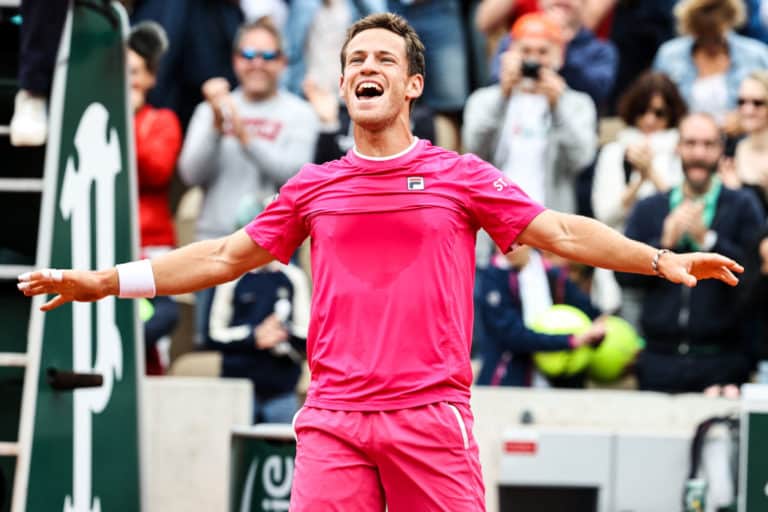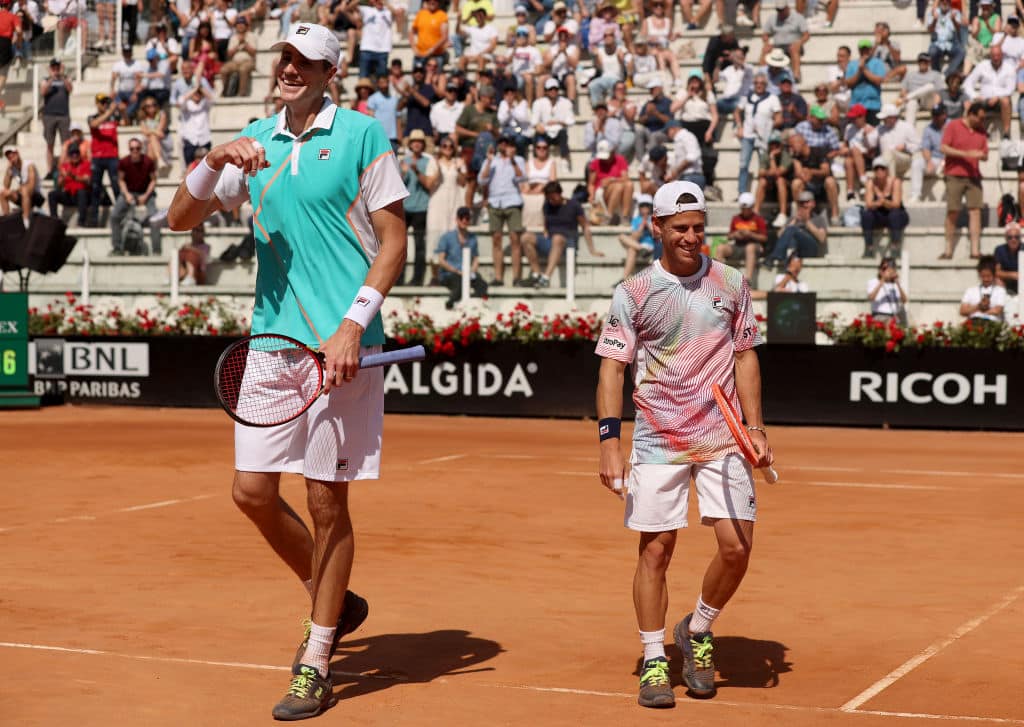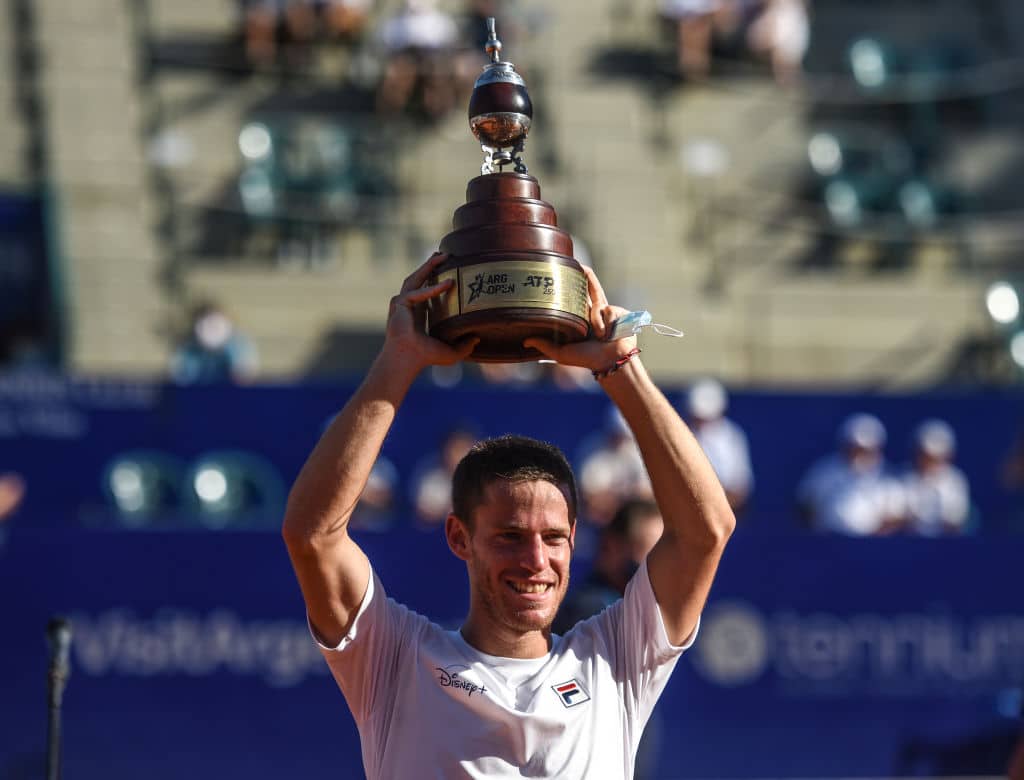
Coming in at 5′ 7″ (1.7 meters), Jewish tennis player Diego Schwartzman from Argentina may be one of the shortest people in his sport but he is standing tall in the world rankings.
Nicknamed “El peque” (which means shorty), Schwartzman has won four ATP singles titles since going pro at the age 17 and reached a career-high singles ranking of world no. 8 in October 2020 (in 2022 he’s currently ranked no. 16). He got his start playing tennis at Club Náutico Hacoaj, a Jewish-Argentine sports club in Buenos Aires founded in the early 20th century by Jews who were not allowed to join other sports clubs in the city.
“I am Jewish and in Argentina, we have many Jewish (people) there, and all the people there know me…(They say), ‘Enjoy! Good luck this season. Come on, keep going!,’” he told ATPTour.com in an interview.
Argentina is home to Latin America’s largest Jewish population with a community of around 241,000 — the fifth largest in the world. Argentina’s Jewish history dates back to the 16th century when Jews fled to the country to escape persecution during the Spanish and Portuguese Inquisitions.
The great-grandson of a Holocaust survivor
During World War II Schwartzman’s maternal great-grandfather, who was from Poland, managed to escape a train heading to a concentration camp. Somehow the car he was on got uncoupled and he, along with the other people in the car, was able to run away.
“Luckily, he made it without being caught. Just thinking about it makes me realise how lives can change in a heartbeat,” Schwartzman wrote in an essay.
“My great grandfather brought his family by boat to Argentina. When they arrived, they spoke Yiddish and no Spanish. My father’s family was from Russia, and they also went to Argentina by boat. It wasn’t easy for all of them to totally change their lives after the war, but they did.”
From selling bracelets to touring the world

Before he was born the Schwartzman family owned a successful clothing and jewelry company, but things quickly headed south during the Argentine great depression of 1998-2002 and his family lost all their money.
“We did anything we could do to get money to pay for trips to tournaments and the travel costs,” Schwartzman explained in his essay. And that everything included his family selling bracelets at his junior tennis tournaments to make end’s meat.
“So from my ancestor escaping a train on its way to a concentration camp to staying in tiny hotel rooms and selling bracelets, I consider myself lucky,” Schwartzman said.
Hebrew school grad
Schwartzman and his three older siblings (two brothers and a sister) all attended Hebrew school in Argentina. He jokingly said “I did not have time for Hebrew school because of tennis.” He and all of his siblings also all celebrated their bar and bat mitzvahs.
He told the JTA that he tries to observe Jewish holidays while on tour — “acknowledging it can be difficult.”
He’s faced antisemitism throughout his career

At junior tournaments Schwartzman often faced antisemitism.
“My father or my mom would fight people outside the club because someone said something,” he said in an interview. “But yeah, it’s always around. It’s sad when it’s happening.”
During the 2017 US Open a spectator shouted at him “Jewish people are not allowed here.”
“We were warming up, and one guy from the crowd said something about how Jewish people are not allowed here, or something like this,” he said. “I just stopped warming up and I asked if these people can go out, because it’s scary.”
Originally Published Sep 1, 2022 12:02AM EDT
